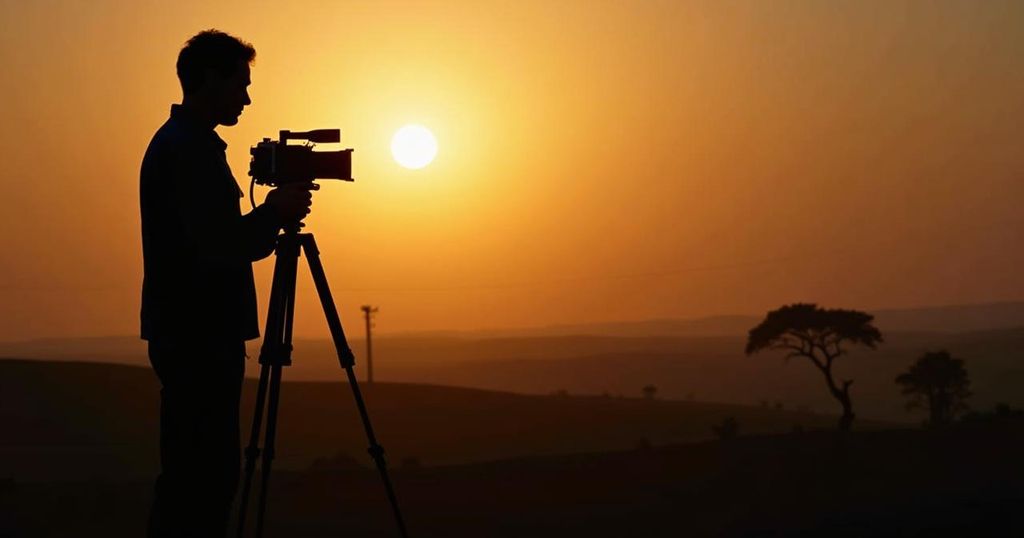Investigation into France 24 Journalist Raises Concerns Over Press Freedom in Sahel
Journalist Wassim Nasr from France 24 is under investigation for allegedly supporting jihadist ideologies through his reporting in Burkina Faso, Mali, and Niger. The accusations led to strong denials from Nasr and his employer, emphasizing the importance of press freedom in the region, marked by increasing restrictions on journalistic activities. The IFJ and EFJ have voiced their support for Nasr, advocating against the criminalization of journalism.
Wassim Nasr, a journalist for the Paris-based television channel France 24, is currently under investigation for purportedly promoting jihadist sentiments through his reporting on extremist movements and security matters in Burkina Faso, Mali, and Niger. On September 25, prosecutors from these three nations made a joint statement via national television, indicating that an analysis of Nasr’s various media contributions suggested he had expressed views that could be interpreted as supportive of terrorist actions in the Sahel region. In response to the accusations, Nasr asserted on social media platform X that he has dedicated 15 years to reporting on such issues, acknowledging that his work has stirred controversy but expressing gratitude for being in a country where journalistic freedom is upheld. Amaury Guibert, the Director of France 24, voiced his complete support for Nasr, denouncing the accusations as serious yet unfounded. He emphasized that these legal challenges represent a significant threat to press freedom, particularly for local and international journalists operating in a region often referred to as a “black hole of information.” France 24 has faced increasing challenges in the Sahel, having been suspended from broadcasting in Burkina Faso in March 2023 and Mali in 2022. The International Federation of Journalists (IFJ) and the European Federation of Journalists (EFJ) have expressed their solidarity with Nasr, calling for the immediate dismissal of what they describe as baseless allegations against him, reaffirming that journalists must be able to report on sensitive issues such as terrorism without facing persecution or censorship.
The investigation into Wassim Nasr highlights ongoing tensions surrounding press freedom in West Africa, particularly in the Sahel region, which has experienced a surge in jihadist activity. This region has been described as a media ‘black hole’ due to the challenges faced by journalists who report on security breaches and extremist groups, often facing threats to their safety and legal repercussions. Moreover, government responses to reporting on sensitive topics can suppress vital information dissemination, thereby jeopardizing the role of the press in democratic societies.
In summary, Wassim Nasr’s situation illustrates the precarious nature of press freedom in regions plagued by terrorism and conflict. The allegations against him have been categorically denied by both Nasr and France 24, underscoring a critical issue: the need for journalists to operate without the threat of criminal charges for their reporting. International organizations like the IFJ and EFJ advocate for the protection of journalistic integrity, highlighting the importance of independent reporting in safeguarding democratic values.
Original Source: www.ifj.org




Post Comment